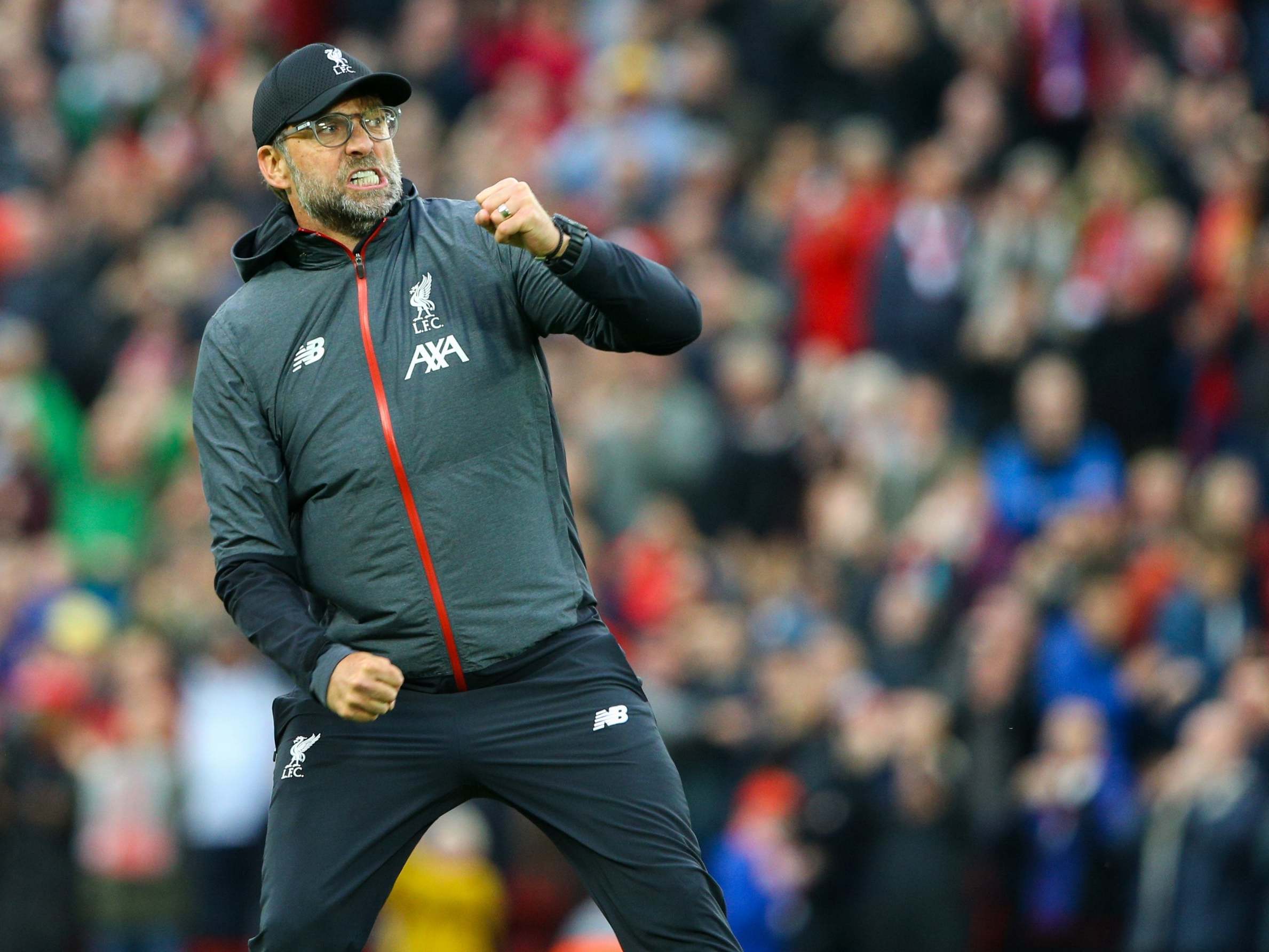What history reveals about the strength of Liverpool’s title lead – and how nothing is certain
Jurgen Klopp’s side boast the largest lead after eight games of the Premier League era, but Pep Guardiola’s Man City possess an aura only Sir Alex Ferguson and Jose Mourinho have matched
In striving to finally end a wait now going on 30 years, Liverpool have already managed something that hasn’t been done in 34 years, and never before that.
Their eight-point lead after a mere eight games is the highest that’s ever been seen at this stage of a season in the history of English football, with Manchester United in October 1985 the only previous side to achieve similar.
That’s how commanding this is. The average lead at this point in the Premier League era is a mere 2.29 points. It is historically good. Liverpool might well be historically good.
The only problem with that main precedent is it’s not an example Liverpool would want to follow. United quickly blew up and ended up sacking Ron Atkinson just a year later. The only real relevance to that, however, is that it merely reminds that no lead – no matter how strong – is a certainty.
The numbers are the only similarity – other than the fact this weekend’s key games weren’t televised either.
Liverpool are not United in 1985, nor Villa in 1998, nor Newcastle in 1995. They are the European champions, and undeniably one of the continent’s strongest teams, probably now the best. They have already made the key club-changing move that United in 1985 – and indeed United in 2019 – were desperate for.
Largest leads after eight matches in PL era
8 - Liverpool 2019/20
6 - Chelsea 2005/06
5 - Chelsea 2014/15
5 - Aston Villa 1998/99
4 - Newcastle 1995/96
3- Chelsea 2012/13
They’ve gone through some hard yards, made hard decisions, learned some hard lessons – not least from last season. A title race can no longer pose any kind of surprise to them
Even this run, after all, follows from last year’s run-in. It’s no freak spell. It’s consistent with over a year of play now, which is why their next fixture could fittingly see them match Manchester City’s record of 18 successive league wins. It is all why the confidence is obviously justified; why it’s impossible not to feel it’s their year, at this moment.
But that’s the thing – moments can quickly change, especially against a title rival as commanding as City

Along with a strong Sir Alex Ferguson United and maybe Jose Mourinho’s first Chelsea, they are one of the few teams in Premier League history you would not feel entirely sure against, regardless of the lead. They are themselves capable of going on the kind of run that can change everything, that can haul you in. You really can’t write them off.
There’s also the intangible feeling from when a lead is cut. If City do reduce it to five points in the next few weeks, say, the very nature of having it cut means that five points will feel “less” than it did when Liverpool first created that gap. Then, they’re only one game from it being properly tense. These are the curious psychological dynamics of a title race, that really enrich it.
There’s also the likelihood that, given their injury problems right now, City are likely to go strong in January. They will surely sign, and then have big players coming back. They could be well primed for a run-in.

The big problem for them is that, in the three months until then, Liverpool look far more capable of a higher points return.
Even their next few fixtures – away to United and home to Tottenham – seem to have fallen at the right time, against the right opposition. There’s also the problem that Pep Guardiola has never really hauled in a lead of this size. Hence maybe his much-repeated comment on Monday morning that titles can be lost in the first eight games. He’s experienced it.
It feels right now that the lead will actually only increase, that City will just slip more. Then again, going into the season, many expected the reverse of this; that the champions would sustain their form; that Liverpool just couldn’t maintain the same level.
It can similarly only take one setback to reset things; one injury; one red card. The very fact we’re pointing to this reflects how strong Liverpool’s position is, though.
The title race obviously is far from over. It can change quickly, and there’s a lot of time for that to happen. But the only thing that’s happening right now is Liverpool careering away.
Join our commenting forum
Join thought-provoking conversations, follow other Independent readers and see their replies
Comments
Bookmark popover
Removed from bookmarks